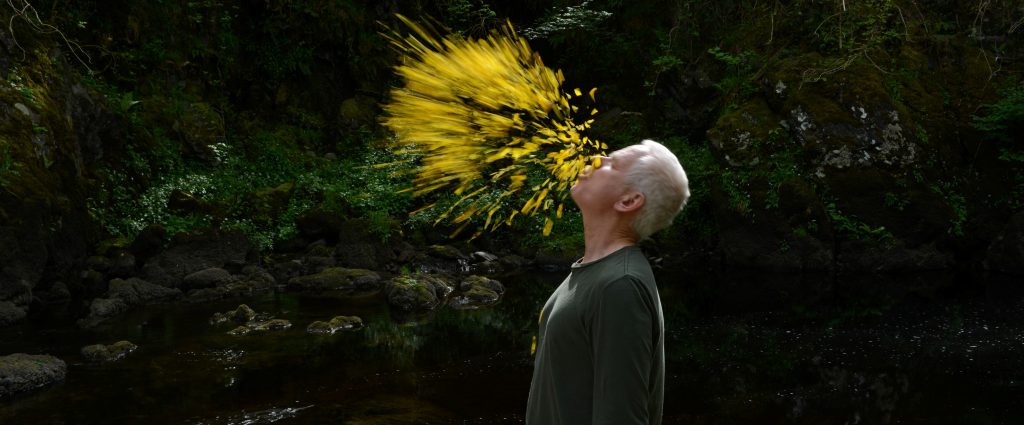Live in New England long enough, and it’s easy to begin to take it for granted. The deeply quiet winters, the burst and blaze of autumn, the summer thunderstorm that chases away July’s heavy heat — our seasonal weather and landscapes become a way to mark our calendar of complaints, instead of being appreciated for the wildly diverse, awe-inducing things they are.
Occasionally, it’s good to be reminded of just how rich our landscape really is, and of how important it is — for our own inner good — to pause every now and again, and simply stand still and watch (and listen, and smell, and feel). As silly as it might sound, many of us have a relationship with nature that is a lot like a marriage on the rocks — go to a therapist, and they’ll recommend carving out some time for each other.
Artist Andy Goldsworthy may be just the therapist for us, and director Thomas Riedelsheimer’s new film Leaning into the Wind our best medicine. An artist whose palette is the Earth itself, Goldsworthy, whose work takes place everywhere from Edinburgh to New England, draws a connecting thread between human life and the natural world. Introduced to a wider audience through Riedelsheimer’s 2001 documentary Rivers and Tides, Goldsworthy makes his art using the natural world around him — rocks, water, sand and soil, snow and ice — with the understanding that it (like us) will be an ephemeral thing, consumed by and returned to the elements.
I’ll be honest, when I first heard a description of what Goldsworthy does, it sounded like the sort of thing guests at an expensive yoga retreat might do on their last morning in the wild: go into the woods, balance some rocks, then get in the BMW with a more balanced soul. What I was not prepared for was how magical his work felt — watching it, especially as seen by Riedelsheimer’s quiet camera, I was struck by a deep longing to not only be outside, but to reconnect with the world around me in a way that, until seeing Goldsworthy’s work, I hadn’t realized I needed. Like so much great art, his touches some part of us that we had forgotten, or never knew, and leaves us changed.
Leaning into the Wind, April 6-9, various times, Berkshire Museum Little Cinema, Pittsfield.
Also this week: Amherst Cinema brings in two films from Germany in special screenings. First up is the 1959 film Stars, presented by the DEFA Film Library at UMass in collaboration with the Massachusetts Multicultural Film Festival and the German Studies Department at Mount Holyoke College. Directed by Konrad Wolf, the film is based on the personal history of screenwriter Angel Wagenstein, and takes place in a small Bulgarian village far from the front lines. But when a transit camp is set up in the area to shuttle Greek Jewish prisoners on to concentration camps, the German sergeant Walter falls for one of the women prisoners. The screening will be followed by a Q&A by Skyler Arndt-Briggs of DEFA and Andrea Simon, director of Angel Wagenstein: Art is a Weapon (which itself screens on April 11 at UMass Amherst’s Massachusetts Multicultural Film Festival).
Stars, Thursday, April 12, 7 p.m., Amherst Cinema, 27 Amity St., Amherst.
Next up is Three Peaks, screening as part of the theater’s New Films from Germany series. Directed by Jan Zabeil, it is the story of a modern family: a boy and his mother, her new partner, and the shadow of a good father who is largely, in the film, unseen. When the new grouping takes off for a holiday in the Dolomites, the older Aaron tries to bond with his girlfriend’s son Tristan—which turns out to be a potentially dangerous game.
Three Peaks, Sunday, April 15, 10:30 a.m., Amherst Cinema, 27 Amity St., Amherst.
Jack Brown can be reached at cinemadope@gmail.com.



